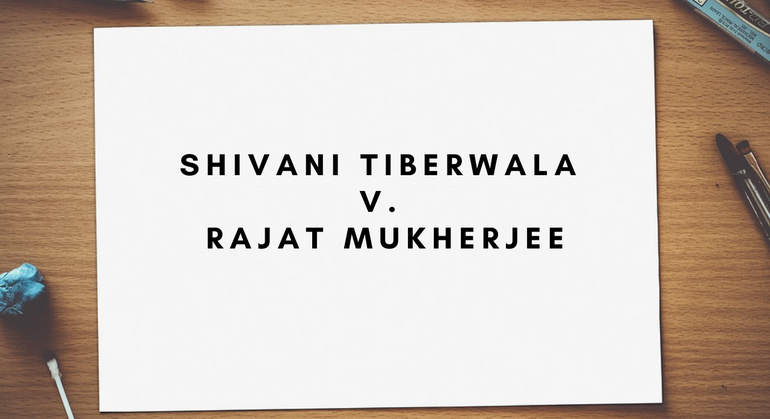

Shivani Tibrewala v. Rajat Mukherjee
The Plaintiff has filed the present suit of copyright infringement against the Defendant alleging that the Defendant's cinematographic work named "Umeed" is an altered copy or substantial reproduction of the Plaintiff's script of the play "The Laboratory". The theme of both the work in question is of unethical drug testing and the malpractices followed by large pharmaceutical corporations, where dangerous drugs are tested on needy and poor individuals without obtaining their informed consent.
The Plaintiff's work depicts a story of a young girl (named Joy) aspiring to be a doctor, having a drunkard father and a troubled background. Due to strained financial conditions of the family, the protagonist's mother approaches her brother in law, who is the CEO of a leading pharmaceutical company for help. He subjects her to clinical trials for money resulting in her death. Joy subsequently comes to know about the illicit clinical trial her mother was subjected to and thus sues her uncle and finally overcoming all the hurdles coming by wins the case.
The Defendant's work represents the story of two sisters coming to the city of dreams (Bombay). The protagonist becomes a beauty contest winner and accordingly makes a number of social appearances, by way of which she provides medical relief to the people. There are other supporting characters in the story like Miss Eliza, Dr. Bali, Dr. Nisha, etc, whose persistent scrutiny of malpractices of the pharmaceutical companies exposes the practice of these companies using the protagonist as a medium to experiment and conduct illicit clinical trials on poor and needy people. On coming to know the true agenda, the protagonist along with her sister and another character decides to battle against the company.
Issues
Whether the work of Defendant amounts to infringement of the copyright of Plaintiff's work.
Applicable Rule
The rule applicable in the present suit is section 51 of the copyrights act.
Judgment
The court observed that based on the judgments submitted before it, it was clear that in an action for infringement of copyright, it was necessary for the Plaintiff to prove substantial copying of its work. The Plaintiff need not prove that the entire work is copied but that the kernel or substance of the Plaintiff’s work was copied.
The court also observed that in cases such as this one, where the subject was the same, what needed to be considered as the treatment of the subject or theme, the manner in which the idea was expressed and not the idea itself. It was noted that the protectable story elements in the rival works must be considered, which did not necessarily flow from the subject or theme and which as such were unique. It was after all the quality of the work copied and not the quantity that would determine infringement of the work or a substantial part thereof.
The court relied heavily on the judgment of R.G. Anand vs. Delux Film[(1978) 4 SCC 118] and observed that based on the principles laid down in the said judgment it cannot be concluded that the Defendant’s work was a substantial copy of the Plaintiff’s script for the cinematographic film.
It was noted that though both stories were based on the common theme of unethical drug testing and the malpractices followed by large pharmaceutical corporations leading to the exploitation of needy and poor individuals, the treatment of the subject and the fleshing out of the story and characters were very different in the rival works. In the court’s opinion, the defendants were prima facie able to prove that their work was original and had been independently arrived at.
It was further observed by the High Court that the balance of convenience was strongly in favor of the Defendants. The Defendant’s film had been ready for release for a long time and any continuation of ad-interim reliefs would have caused grave prejudice to the Defendants, and therefore the present Notice of Motion filed by the Plaintiff was dismissed.
Though it cannot be denied that work ought to be protected from copyright infringement, it needs to be understood that there is a need for faster remedies to decide such cases considering there are a number of economic hardships which arise for several stakeholders as a result of a movie being postponed and that too for such a long duration.



